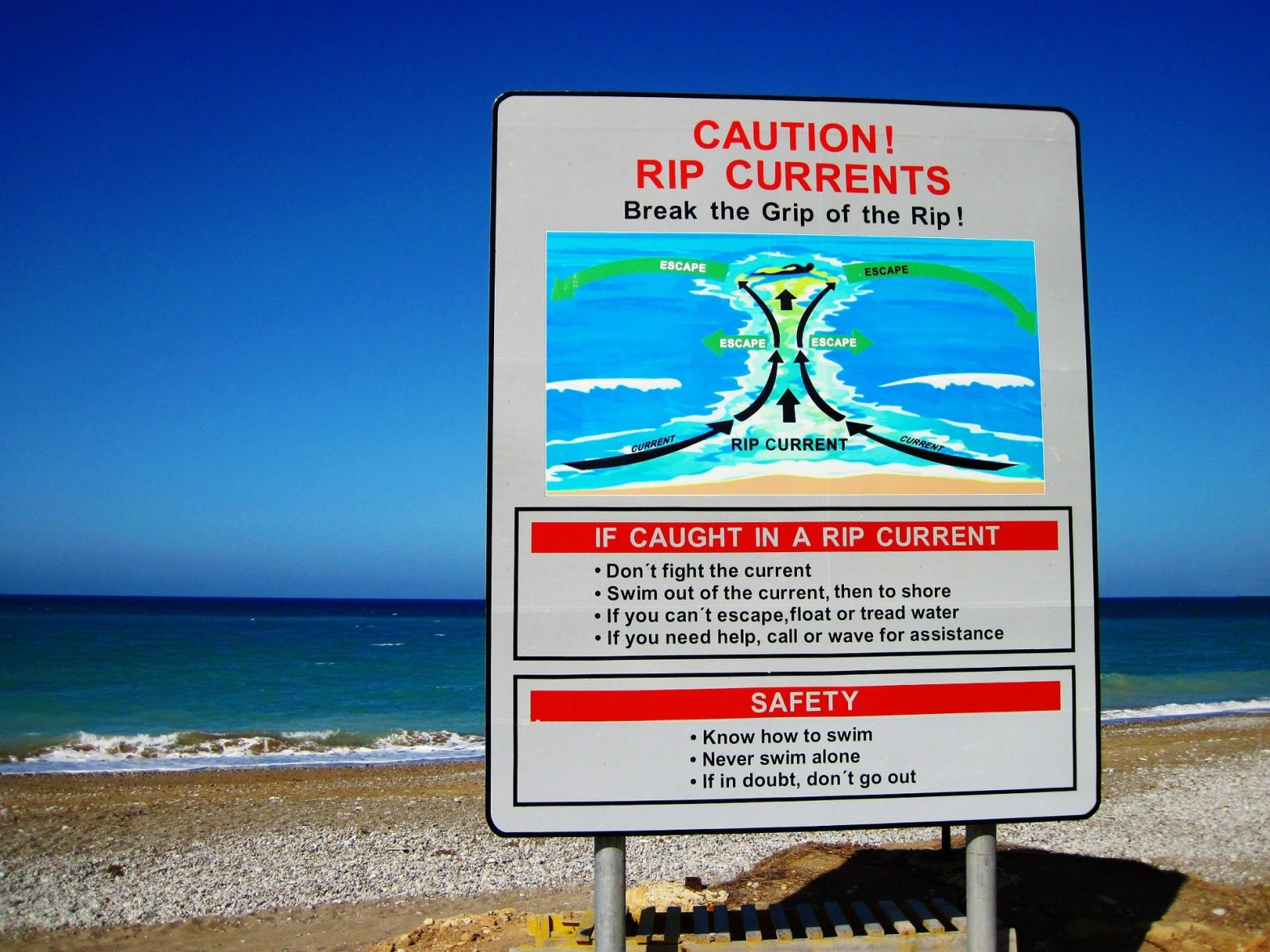![Rip currents pull people away from shore, not underwater. Rip currents are not undertows or riptides. [Pixabay.com]](http://127.0.0.1/wordpress/wp-content/uploads/2022/01/ghows-DA-4c70f6d3-c607-7413-e053-0100007fd2c9-a2cc5b72.jpeg)
It was disheartening to read that even with a double red flag, at least nine people had to be rescued from the gulf recently, and one person lost their life.
In that spirit, I believe it is important to review information on the importance of respecting our sometimes unforgiving gulf.
Swimmers getting caught in rip currents make up most lifeguard rescues. These tips from Florida Sea Grant and the National Oceanic and Atmospheric Administration's National Weather Service list what to do if you encounter a rip current.
ABOUT RIP CURRENTS
Rip currents form when water flows away from the shore in a channeled current. They may form in a break in a sandbar near the shore, or where the current is diverted by a pier or jetty.
From the shore, you can look for these clues in the water:
•A channel of choppy water
•A difference in water color
•A line of foam, seaweed or debris moving out to sea
•A break in incoming wave patterns
Rip currents pull people away from shore, not underwater. Rip currents are not undertows or riptides.
HOW TO ESCAPE
•If you get caught in a rip current, don't panic! Stay calm and do not fight the current.
•Escape the current by swimming across it — parallel to the shore — until you are out of the current.
•When you get out of it, swim back to the shore at an angle away from the current.
•If you can't break out of the current, float or tread water until the current weakens. Then swim back to shore at an angle away from the rip current.
Rip currents are powerful enough to pull even experienced swimmers away from the shore. Do not try to swim straight back to the shore against the current.
RESCUING OTHERS
Many people have harmed themselves trying to rescue rip current victims. Follow these steps to help someone stuck in a rip current.
•Get help from a lifeguard.
•If a lifeguard is not present, yell instructions to the swimmer from the shore and call 9-1-1.
•If you are a swimmer caught in a rip current and need help, draw attention to yourself — face the shore and call or wave for help.
SAFE SWIMMING TIPS
You can swim safely this summer by keeping in mind some simple rules.
•Do not overestimate your swimming abilities. Be cautious at all times.
•Never swim alone.
•Swim near a lifeguard for maximum safety.
•Obey all instructions and warnings from lifeguards and signs.
•If in doubt, don't go out!
Laura Tiu is an agent at the University of Florida's Institute of Food and Agricultural Sciences Extension office in Crestview.


This article originally appeared on Crestview News Bulletin: How to survive rip currents
